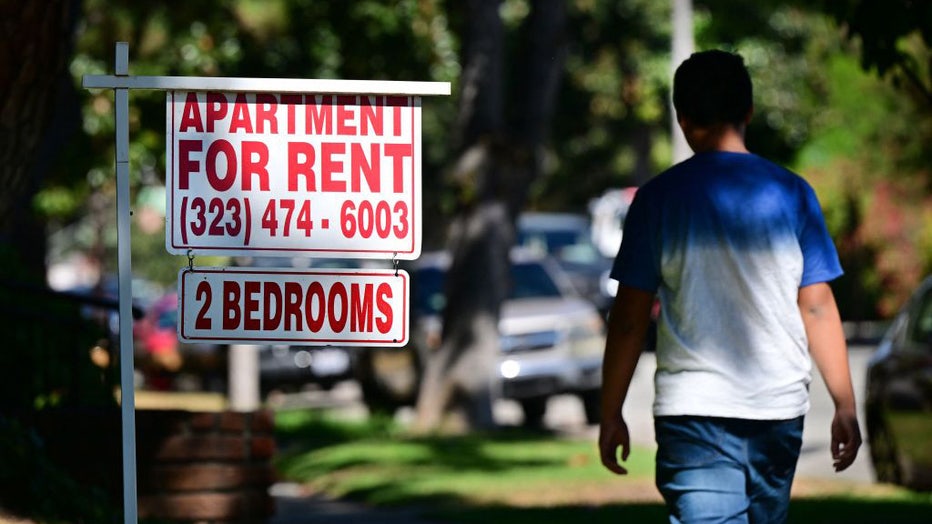What to do when your landlord raises the rent

How to handle a rent increase
Rising rents can be stressful, but there are a few things you can do to try to minimize the damage. FOX 5 real estate expert John Adams shares his expertise.
It’s finally summer. The days are longer, the weather is great, and then it arrives: the email you’ve been dreading. Your landlord is raising the rent. Facing a rent hike can feel overwhelming, but you’ve got more control than you think.
FOX 5 real estate expert John Adams has your game plan to handle it like a pro.
Step 1: Don't Get Mad, Get Negotiating
Your first reaction might be to fire off an angry email or start packing. Instead, take a deep breath! Your best first move is a calm and professional negotiation.
Landlords aren't all the same. If you rent from a "mom-and-pop" owner - an individual or a small family - they are sometimes more flexible than you'd expect. They value a reliable tenant who pays on time and doesn't cause trouble. Finding a new tenant is a royal pain for them.
On the other hand, if you rent from a massive property management firm, your chances of an exception are slim. Their decisions are usually based on company-wide policies and market algorithms, not on whether you're a great tenant. Still, it never hurts to ask.

An apartment for rent sign is posted in South Pasadena, California on October 19, 2022. (Photo by Frederic J. BROWN / AFP) (Photo by FREDERIC J. BROWN/AFP via Getty Images)
Ask the Right Way:
Put it in writing. An email is perfect. It’s less confrontational and creates a paper trail.
Be polite and professional. Start by saying you enjoy living there.
Remind them of your value. Casually mention your track record: "As you know, I've always paid my rent on time and have taken great care of the apartment over the past year."
Make a specific counter-offer. Don't just say, "It's too much." Propose a solution. "I understand that costs go up, but a $200 increase is significant for my budget. Would you be willing to meet me in the middle with an increase of $100?"
Offer something in return. Suggest signing a longer lease such as 18 or 24 months, in exchange for keeping your current rent. Landlords love guaranteed income.
Step 2: Build Your Backup Plan
Whether your landlord is a big corporation or a small owner, your greatest power comes from your willingness to walk away. This isn't a bluff; it's your backup plan. Landlords hate vacancies. An empty apartment means they have to spend money on painting, cleaning, and advertising, all while earning zero income from the unit.
Your homework is to know your options. Spend an hour on sites like Zillow, Apartments.com, and RedFin. Find out the current market rate for apartments similar to yours in your neighborhood. If your landlord wants a price that's way above the average, you gain massive leverage. You can go back to them and say, "I would much rather stay, but I've found several comparable apartments nearby for a lower price. I'm hoping we can work something out."
Step 3: Know the Rules of the Game
A short fuse works in a landlord’s favor. The best way to feel confident is to know your rights. While Georgia doesn't have "rent control" that limits how much your rent can be raised, the law is clear on how it can be raised.
The 60-Day Rule: In Georgia, a landlord must give you 60 days' written notice before a rent increase can take effect. That is the law unless the lease says otherwise. Most leases require only 30 days' notice, so read your lease! They can't raise your rent for next month with a letter they sent you yesterday. If they don't give you proper notice, the increase isn't valid until they do.
This is more than just a rule - it's your breathing room. It gives you two full months to negotiate, execute your backup plan, and find a new place without being rushed. Before you do anything else, pull out your lease agreement (you probably have a digital copy in your email) and check the clause on "Renewals" or "Notice." Your lease might even require more than 60 days' notice.
By taking these three steps—negotiating smartly, researching your alternatives, and understanding your rights—you transform from a passive renter into an empowered consumer. That letter might still be annoying, but it no longer has to be scary. You've got this!
The Source: John Adams is a longtime FOX 5 Atlanta real estate expert, broker, landlord and consumer advocate. He has helped Georgia residents navigate real estate issues for more than 15 years.

